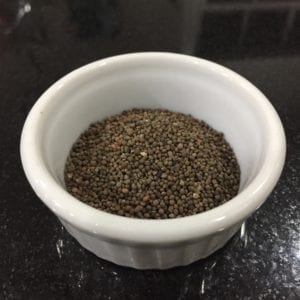 Beginning with this newsletter issue, we are going to introduce single Chinese herbs. We will tell you a little bit about the characteristics of the herb, which conditions can be treated with the herb, how the herb is prepared, what kinds of formulas would incorporate this herb, and whatever pertinent information would be helpful in gaining a basic understanding Chinese herbs. Also, we will have the herb available in the office for you to try for the next few months.
Beginning with this newsletter issue, we are going to introduce single Chinese herbs. We will tell you a little bit about the characteristics of the herb, which conditions can be treated with the herb, how the herb is prepared, what kinds of formulas would incorporate this herb, and whatever pertinent information would be helpful in gaining a basic understanding Chinese herbs. Also, we will have the herb available in the office for you to try for the next few months.
It is important to understand that no one should begin taking Chinese herbs without consulting a professional. Chinese herbs can be just as effective in treating medical conditions as pharmaceutical medications and they can be just as dangerous without appropriate knowledge and training.
In this issue, we will be looking at an herb that is appropriate for the fall season.
Do you ever struggle with wheezing? Do you ever have a cough with copious phlegm? Do you ever have more difficulty inhaling than exhaling? Do you ever struggle with dry stools that are difficult to expel?
If you answer yes to any of these questions, then Zi Su Zi is an herb that could be incorporated into your custom formula. The Latin name for Zi Su Zi is fructus perillae which means it can be either the fruit or seed of the perilla plant. However, in this case, Zi Su Zi is the seed of the plant.
Zi Su Zi is a warming herb that is directed to the Lungs and Large Intestine. This particular herb has spicy flavor and is meant to promote the movement of Qi. It also helps to break up certain forms of stagnation like blocked bowels or a stifling sensation in the chest. Because it is a seed, Zi Su Zi has an oily quality that helps to lubricate the intestines.
Zi Su Zi can be used to stop coughs, calm wheezing, dissolve phlegm, moisten the intestines, and unblock the bowels. It is primarily used for coughing and wheezing with copious phlegm, as well as when inhalation is more difficult than exhalation. This herb is generally used in formulas for the treatment of allergies, colds, coughs, and constipation.
While there are some contraindications, this herb is generally safe for most patients, and there are no known drug interactions. The next time you are in the office, you are welcome test this herb.